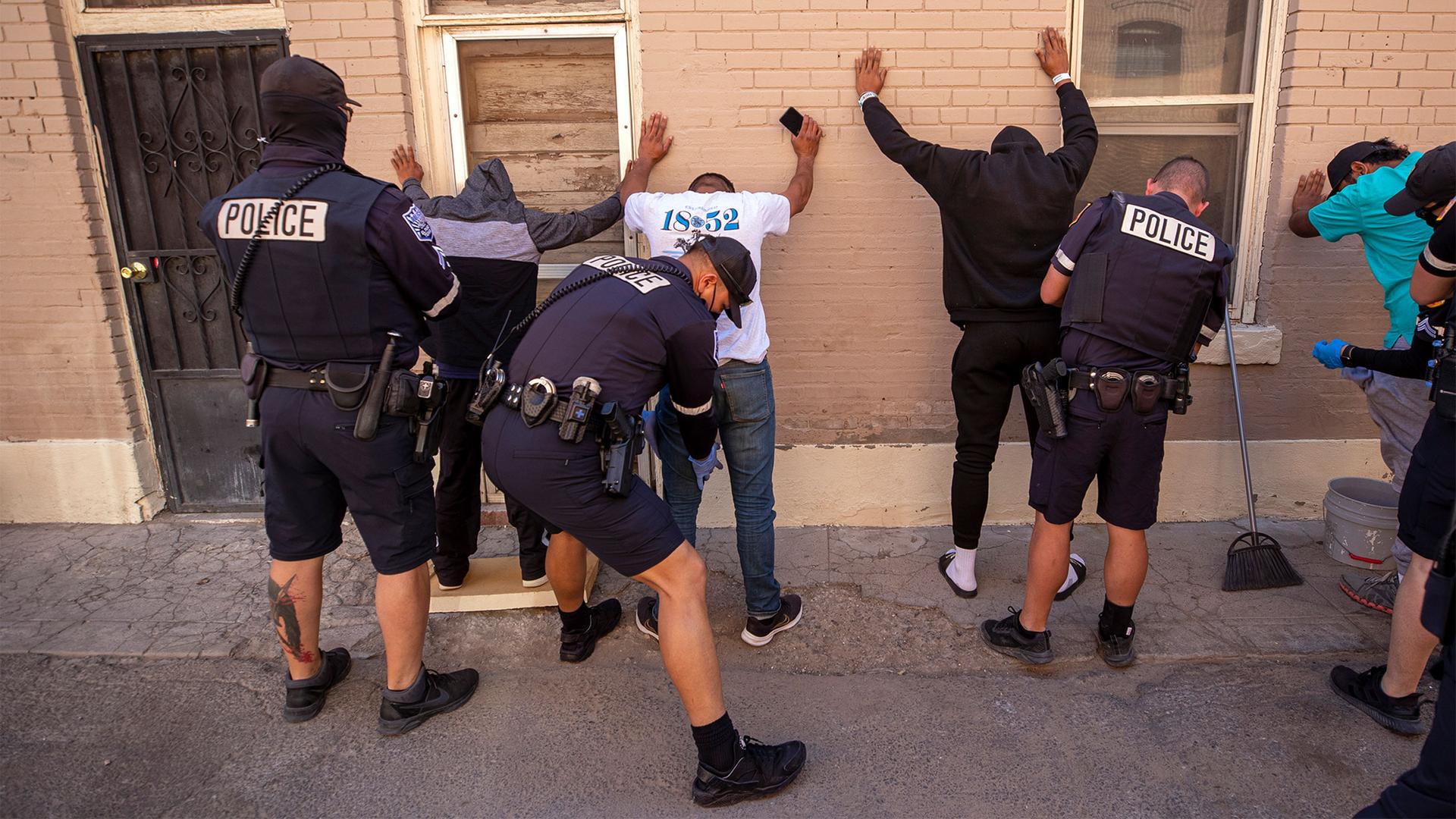A new report documents years of human rights abuses committed by Customs and Border Protection agents against migrants at the US southern border.
The Kino Border Initiative and the Washington Office on Latin America have listed hundreds of incidents of human rights violations by immigration officials that include physical violence, verbal abuse and sexual harassment — including some cases that have been fatal.
“We started documenting these cases years ago in our facilities in the Mexican city of Nogales,” said Johanna Williams, a social worker with the Kino Border Initiative, an organization that helps migrants who are deported from the US.
“The people that we receive, many of them, they were held in detention for a couple of days or maybe months before being deported, and we provided a space for them to share their stories and frustrating experiences while they were in detention,” she said.
Williams said members of the staff hear stories of human rights abuses on a daily basis. The most common one is the practice of deporting migrants into dangerous Mexican cities during the early hours of the morning, when most shelters and services are closed.
This is exactly what happened to David Reyes, an immigrant from Venezuela.
“We were put on a bus and dropped off on the Mexican side of the border at 2 in the morning,” he said in a recent interview.
Immigration officials confiscated all his documents and valuables, so he couldn’t pay for, or even find, transportation, he said. As he walked in the middle of the night, Reyes said, he and two others were kidnapped and their families had to pay $2,000 for their release.
Advocates question why deportees are left in the middle of the night to face these kinds of risks.
Other documented stories of abuse include unprovoked violence, verbal abuse, denial of food or medical services, family separation, racial profiling, sexual harassment and aggression against members of the LGBTQ community.
Williams recalled the story of another migrant who arrived at the Kino Border Initiative’s facilities.
“A Border [Protection] agent pushed down this individual in the desert against a rock and it ripped a tendon in his knee — falling on the ground hard onto the rock — and then the Border [Protection] agents forced him to walk 25 meters to the track to then be detained with his injury and the whole time making fun of him. And then, once he got into custody, they didn’t give him medical attention for his injury.”
Back in 2015, Williams said the Kino Border Initiative started making formal complaints to find out the accountability process from an insider point of view from people experiencing the abuse.
What they found was a complicated, opaque and slow-moving process.
“There are four agencies with overlapping responsibilities that handle complaints and pass cases between each other,” she explained. “All of these agencies suffer from personnel and other capacity shortfalls, and some have insufficient power to make their recommendations stick.”
Adam Isaacson, a security expert with the Washington Office on Latin America who co-authored the report, said the lack of accountability is a systemic problem within the Department of Homeland Security.
According to the report, the investigations can begin in two ways. Some — often, the most serious cases — start at US government investigators’ own initiative, especially if the site of the abuse is a crime scene. But many others require outside actors to take the first step.
“Without their initiative, most such cases would never be investigated at all — and, as this report shows, many still don’t get investigated,” Isaacson said.
The advocates filed dozes of complaints and found that 95% of the cases resulted in no investigation and no disciplinary action taken.
Customs and Border Protection has said that they have implemented reforms that make the agency more transparent and accountable, and that they take allegations of misconduct very seriously.
Williams said, despite the lack of accountability, her organization will keep filing complaints and pushing for change “with the hope that we can honor the courage of the migrants who are choosing to believe that a better world is possible and to believe that they could be treated with dignity and respect while in custody.”
The authors of the report are also holding meetings with members of Congress and immigration officials to try and address the problem.
Related: San Diego doctor says height of the border wall is leading to more injuries from falls
